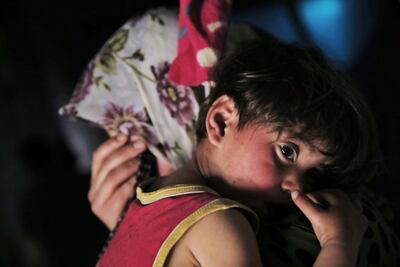Refugee charities are calling for increased humanitarian support for vulnerable communities of displaced Syrians in south-east Turkey after a report found many are struggling without access to clean water, toilets and education.
The report, published by Turkish aid group Development Workshop, highlighted the plight of groups of refugees and semi-nomadic migrant workers living in makeshift camps and neighbourhoods in Adana, Gaziantep and Sanlifurna.
Among the 20 communities surveyed, no children were attending preschool, with very few going to primary and secondary school. Poor accommodation was also identified as a major concern, with a majority of those surveyed found to be living in single rooms or tents and sleeping on bare concrete or earth.
Under Turkish law, Syrian refugees are unable to apply for resettlement but can get temporary protection status, giving them access to state services including healthcare, education and work permits.
Refugees who do not have temporary protection status are often unable to access assistance or services, the report found, with basic needs such as food and clean water limited, and families also threatened by very low food security.

Refugee children were singled out as being particularly vulnerable, and the report found that the settlements were not a safe environment in which to play for them to play in, leaving them at risk of injury and threats from older children and adults.
The Development Workshop research was supported by Irish charity Goal as part of the EU-funded Link Project supporting Syrian refugees in Turkey.
The researchers called for a dramatic increase in support to vulnerable communities living in Turkey’s south-east.
Increased support for children’s access to education, extending tailored assistance to those in need and developing access to local services were all identified as key areas for improvement.
The Ankara-based research group also recommended that further work be done to combat prejudices against groups from nomadic backgrounds.
Turkey is home to more than 3.6 million refugees who have fled violence in neighbouring Syria, as well as several hundred thousand migrants from other countries.
The EU relies on Turkey to stop migrants from entering the bloc through eastern frontiers with Greece and Bulgaria, and is paying around €6 billion ($7 billion) to help Syrian refugees in the country in order to persuade Ankara not to let migrants head west into Europe.


